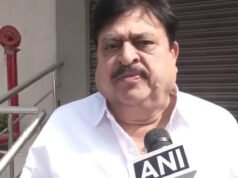Clearing National Eligibility Test (NET) will no longer be a mandatory qualification for appointment as an assistant professor, according to the University Grants Commission (UGC) draft guidelines released by Union education minister Dharmendra Pradhan on Monday for faculty recruitment and promotions in higher education institutions.
The draft norms focus on removing “rigidity” from the existing eligibility criteria for faculty appointments and providing opportunities for universities to hire academic staff from diverse, multidisciplinary backgrounds in line with the National Education Policy (NEP) 2020.
“These draft reforms and guidelines will infuse innovation, inclusivity, flexibility, and dynamism in every aspect of higher education, empower teachers and academic staff, strengthen academic standards and pave the way for achieving educational excellence,” Pradhan said, during the release of draft regulations at UGC headquarters in Delhi.
Academicians have called the draft regulations “progressive” steps towards strengthening higher education.
The new norms will replace the existing 2018 regulations on minimum qualifications for faculty appointments in universities and colleges. The 2018 regulations made it compulsory for the candidate seeking the role of assistant professor level — entry-level positions — to have cleared the UGC’s National Eligibility Test (UGC-NET) after postgraduation (PG). It will not be mandatory under the new UGC draft norms.
“The 2018 regulations belong to the pre-NEP 2020 era. In the new regulations, we have removed rigidity from existing regulators and are providing flexibility to the higher education institutions to select the best talents and provide them with a supportive ecosystem to grow in multiple ways,” UGC chairperson M Jagadesh Kumar told HT.
“The NEP 2020 says that we must introduce multidisciplinary education, therefore our teachers also had to come from multidisciplinary backgrounds. Regardless of your undergraduate (UG) or postgraduate (PG) degrees and their respective disciplines, pursuing a PhD in a completely different field will still qualify you for faculty positions,” Kumar added.
In a meeting held on December 23, 2024, UGC approved the “Draft UGC (Minimum Qualifications for Appointment of Teachers and Academic Staff in Universities and Colleges and Measures for the Maintenance of Standards in Higher Education) Regulations, 2025”. Pradhan released the draft guidelines which are now available on the UGC website for feedback and suggestions. These regulations specify the minimum qualifications, experience, and accomplishments for appointment and promotion of faculties and other academic staff, including vice-chancellors, in higher education institutions.
The new draft norms state that candidates with four-year undergraduate (UG) or postgraduate (PG) degrees in disciplines different from their PhD field will still be eligible for appointment as assistant professors in the subject of their PhD. Additionally, candidates who qualify for the National Eligibility Test (NET) or State Eligibility Test (SET) in a subject different from their four-year UG degree will be eligible for assistant professor positions in the discipline or subject in which they cleared NET or SET.
“This is an important flexibility to remove rigid subject boundaries and allow faculty applicants to transition across disciplines, creating a more multidisciplinary ecosystem within university campuses as envisaged in NEP 2020,” Kumar said.
Candidates must have a four-year UG degree with at least 75% marks or a PG degree with at least 55% marks and a PhD Degree for the appointment of assistant professor, according to new draft regulations.
As per the 2018 regulations, candidates seeking appointment as faculty members are judged based on the Academic Performance Indicator (API) system which heavily relies on quantitative metrics such as journal or conference publication counts. The 2025 regulations discontinue the API-based shortlisting and adopt a more qualitative approach, Kumar said.
“So far, we have been emphasising publication in journals and presentation of papers at conferences. Now, faculty members can do that while contributing to the universities and colleges by writing textbooks, developing technologies, applying for patents, applying for patents, establishing start-up companies, researching on Indian Knowledge System (IKS), and promoting Indian languages in the learning process in higher education institutions. The contributions of faculties in these areas will be assessed by selection committees in their promotions,” Kumar said.
The PhD degree will be a mandatory qualification for promotion to associate professor and professor in universities and colleges. Candidates must have made at least notable contributions in at least four areas out of the nine — innovative teaching contribution; research or teaching lab development; consultancy or sponsored research funding as a principal investigator or co-principal investigator; teaching contributions in Indian languages; teaching-learning and research in IKS; student internship or project supervision; digital content creation for massive open online course (MOOCs); community engagement and service; and start-up with funding through government, angel or venture funds to support it.
While for appointment as associate professor, candidates must have a minimum of eight years teaching as an assistant professor, the appointment for professor requires at least 10 years of teaching as assistant professor or associate professor.
With an aim to enable skilled practitioners to contribute to academia while preserving cultural heritage and promoting physical education, the latest UGC draft regulations have introduced specialized recruitment pathways to attract top talent in fields like yoga, music, performing arts, and sports, recognising professional achievements and national or international accolades.
A distinguished person possessing high academic qualifications with a minimum of ten years of experience as a professor in an HEI will be eligible to be appointed as vice-chancellor. The draft regulations have also changed the selection process for vice-chancellors by expanding eligibility criteria to include professionals from academia, research institutions, public policy, public administration, and industry.
Prof Dhananjay Joshi, vice-chancellor, of Delhi Teachers University called the new draft regulations a “progressive step” towards higher education. “Teachers should be dynamic in line with the multidisciplinary nature of education as advocated in NEP 2020. The regulations provide the guidelines for the same,” he said.






